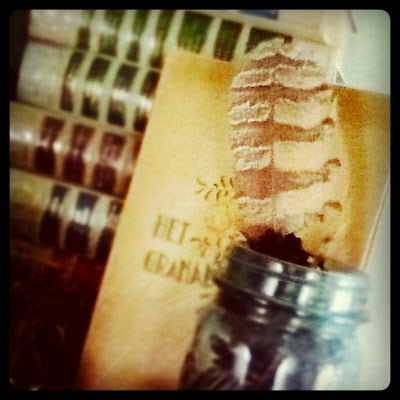For a long time, at least as long as I can remember, I've had the sense that
I just don't fit. But it's never something I talk about, apart from with my mom and Andy -- until today.
I grew up on three wooded acres in the midwestern suburbs. Now, right there is something that set me apart from many of the kids at school, who lived in houses situated elbow-to-elbow on whirling, infinite cul-de-sacs. These neighborhoods were full of children riding bikes and playing kickball until the sun set or the dinner bell rang (or so I imagined). Not that I ever really wished for such a life; the woods were, and remain, where I was most at home. I had one neighbor my age, who lived on a secluded street just behind our property; but mostly I would wander around on my own, climbing trees and building forts, or swinging as high as I could on the swing set while belting out show tunes.
When friends would come over, our games tended to be highly imaginative: We'd pretend our swings were unicorns taking us to distant lands, or (and this is so utterly embarrassing, especially for a sociology minor, that my stomach is turning just thinking about it) we'd play "Slaves," a game that required us (in the role of the titular slaves) to make soup for our master. We'd collect berries, leaves, and twigs, and mix them all up in a big bucket filled with water. Occasionally we'd also dig holes, because apparently, to a white nine-year-old in the suburbs of Chicago, that's what slaves did.
None of this, however, left me feeling all that different from my peers; I had friends from all sorts of backgrounds. Some were the children of doctors and ad-execs and lived in mansions; others had been relocated from the city projects to subsidized apartments in our area. In third grade, one of my best friends, the daughter of a South Korean scientist, lived at
FermiLab. (
Cottesong Park, are you out there? Remember me?)
These surface-level descriptors were never much of an issue for me. As my mom would say, "You notice race the way you notice hair color: Oh, red hair. Oh, brown skin." In my mind, there wasn't a whole lot of story associated with such traits -- red hair was red hair, brown skin was brown skin. You had money, or maybe you didn't, and neither was particularly good or bad. (Though, full disclosure, I did ask for and receive a black Cabbage Patch Kid, as well as a black Barbie. Obviously I was drawn to them in some way. You tell me why.)
Instead, what set me apart was my high sensitivity and (dare I say it?) intellect. This is still the case today. I process the world in a deep, analytical, and complex way. On the Myers-Briggs personality scale, I'm a tried-and-true
INFJ -- a combination found in only one percent of the population. Is it any wonder I have trouble finding like-minded people?
The first time I was ever stung by a bee, I cried to my mother, "I don't understand, Mama. Why? Why did he sting me?" I hadn't done anything to the bee, not that I knew of, and I couldn't comprehend why it would lash out at me.
Human interactions later in life have often left me in much the same state.
Prior to entering seventh grade (my first year of middle school) I was generally pretty confident in my friendships and social status. Sure, I was a little quirky and considered "smart," but I was still part of the popular group, at least as it existed in our little corner of the world. I had my first kiss (and first period) by age eleven; I knew what music was in (Alanis, duh); I wore overalls, sometimes with leggings; I painted my nails with Express polish in shades of purple and teal; and I knew the names of all the actors on
Full House, a show I never missed.
But suddenly, unexpectedly, my world started to crack apart around me. Without knowing why, I was abandoned by my closest friends, a number of whom I'd known since preschool. It was a gradual process, with some key events that went straight to my heart -- and manifested themselves on my wrists. This is something else I never,
ever talk about, and I suspect even those closest to me now don't know. But here goes: I started cutting. Or dabbling in it, anyway, mostly using straight pins to create (and thereby relieve) some of the incomprehensible, overwhelming pain I was feeling.
My mom (how does she keep popping up here? You're a saint, woman) gave me a copy of
Reviving Ophelia, and I knew, at least, that my experience wasn't unique to me. Still, it was hard not to have someone in my immediate environment to connect with. My response was, essentially, to get weirder. I started SAD (Students Against Dissection) and became a vegetarian. I bought my first
Ani DiFranco album and discovered
Spilling Open, which prompted me to start making my own mixed-media journal pages.
Part of this process, I believe, was actually me discovering my true self: Uninhibited by the social conventions adhered to by my prior group of "friends," I was free to engage with whatever ideas I chose. And I stuck with what resonated (I am still a vegetarian, and I credit Ani with helping me survive my teens. In fact, I posted
this song just a few weeks ago).
It took until around my junior year of high school to start feeling OK in my own skin again, at least most of the time. I was unapologetically involved in activities that represented my passions: theatre, speech, art, orchestra, German club, student council. And I was good at them, holding numerous leadership positions, winning multiple awards, and competing in the state speech finals (Prose Reading, in case you were wondering. My rendition of
Sarah Vowell's "Shooting Dad" killed it. Pun semi-intended.). By senior year, I had a tight-knit group of friends and my first serious boyfriend (yep, that'd be my now-husband).
This isn't to say there wasn't plenty of tumult in between, including an unfortunate phase my freshman year that involved wearing red plaid pants, but somehow it felt much more
normal -- the ups and downs of everyday teen existence, and nothing multiple late-night viewings of John Hughes movies couldn't remedy.
Of course, almost immediately following high school I moved to Germany, prompting a whole new round of Ways-I-Don't-Fit (and never will again -- once you adopt another culture so completely, I don't think it's ever possible to fully return to your own. Hence, perhaps, the reason I have continued to wander all these years since.).
But all that can wait for another day. Maybe. If I'm so inclined. For the time being...
I'm embarrassed to admit:
So much of what I've just written. That I played a game called "Slaves" as a child. That my best friends decided I wasn't worthy of them, and that my response was to start cutting. That I'm worried about what my mother will say, now that my version of all this is out in the open. That, amidst all I have to be grateful for, I still have bouts of agonizing loneliness and despair, and the sense that I'm incapable of having real friends.
I think, what I fear the most here, is that that last bit is true. (Or else the part about my mom ;)) Sometimes I feel like I'm in the adult version of my middle school years, trying once again to figure out who I am and where I stand, while the rug is continually pulled out from underneath me. I hold myself at a distance, convinced that most people secretly hate me or will abandon me one day. Amazing how the past manifests itself in one's current reality.
And now I want to know (please?):
What are you embarrassed to admit?
Ever since I started this process -- returning to art, talking about what scares me -- readership of this here blog has almost quadrupled. Granted, I didn't have a whole lot of regular readers to begin with, but I know someone's out there, on a daily basis. So comment, anonymously or not. I'm truly curious about what you have to say.

















































